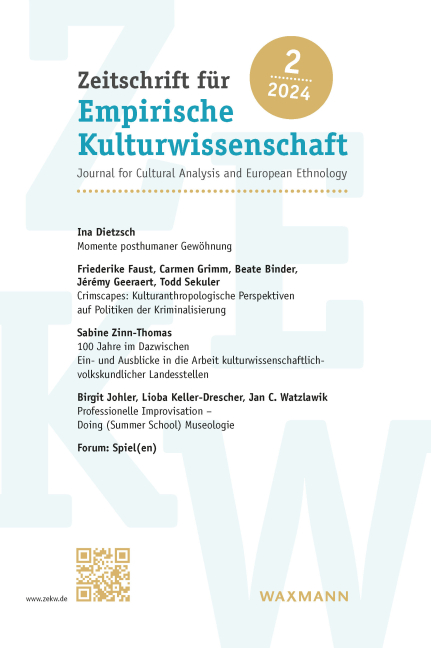Abstract
At the end of the last century, criminalisation has become a globally accepted mode of governing social problems. Using two policy fields, sea rescue in the Mediterranean and combating hate speech on the internet, we propose a cultural anthropological perspective on the punitive turn and the politics of criminalisation. Using the concept of crimscapes, we describe the dynamic landscapes that unfold around criminal justice interventions, in which new figures of threat and vulnerability emerge, moral orders are restructured and new constellations of actors and practices are brought to the fore. By relating different policy fields, understood as local articulations of global dynamics of criminalisation, the concept also points to the ambivalences of this policy, which can also have an enabling and protective effect alongside exclusionary, stratifying and punitive effects. This underlines the need for critical cultural anthropological research that highlights the ambivalences and contradictions of criminalisation and contributes to an informed critique that is not based solely on normative evaluations, but can also draw attention to unintended effects and contradictions in political debates.

This work is licensed under a Creative Commons Attribution 4.0 International License.
Copyright (c) 2024 Zeitschrift für Volkskunde

